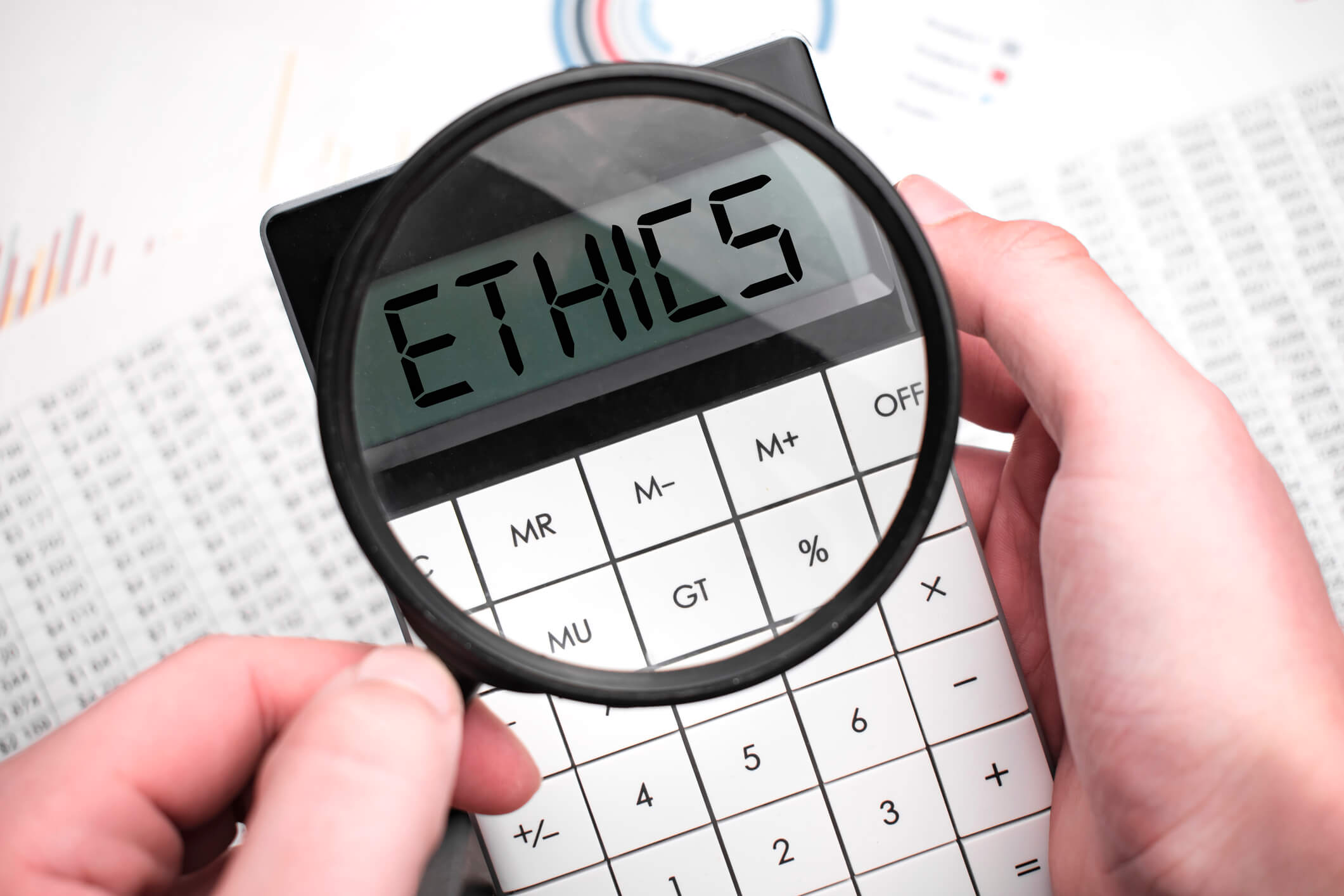Accounting ethics is one of the most misunderstood topics in today’s business world. The field of ethics deals with whether or not accounting practices are acceptable. In addition to legality, the public sees a company’s accounting decisions as right or wrong, ethical or unethical.
One critical attribute of maintaining professionalism is adhering to a rigorous set of ethical accounting guidelines and practices. Maintaining professionalism and moral codes are the essential aspects that accounting professionals choose to abide by to enhance their profession, maintain public trust, and maintain honesty. The sad truth about this profession is that not every professional following this occupation is trustworthy. Unfortunately, people violate ethical codes of conduct and accounting standards daily. Some of the critical aspects of ethics in accounting need to be focused on to maintain professionalism.

Independence and Objectivity
Independence and objectivity are the two main aspects of the accounting profession, followed simultaneously in the organization. Trust is a critical component that helps make unbiased decisions and effective decisions beneficial to the client. The benefits of one financial product over others lead to biases that skew financial advice to the clients. Threats to independence are always a significant concern to maintain professionalism.
Integrity
Integrity is one of the fundamental elements of the accounting profession. Accountants must be honest and keep away all their interests aside. Accounting professionals should build honest and professional relationships with their clients, avoiding all personal conflicts of interest. Accountants are not required to associate themselves with any misleading or false activities to ensure the highest level of integrity in accounting practices.
Confidentiality
A very critical issue that many accounting and financial organizations face. Disclosure of any financial information by an accounting professional without the company’s consent is a violation of accounting ethics – unless there is a legal and professional reason to do so. Accountants are required to keep all the company’s financial information private and confidential to maintain the code of conduct. Accountants deal with personal and confidential information throughout their daily routine. Accountants must maintain the confidentiality of the company’s accounts and employees’ data. Accountants should not trade accounting information with outsiders to ensure data safety.

Professional Competence
Accountants who make errors while maintaining the accounts manually or using old software are considered incompetent. The automated accounting software available today replaces manual work with more efficiency and effectiveness. Accountants are required to remain up to date with all accounting software for better results. Consulting with others to gain a particular knowledge increases peer bonding and helps accountants generate more respect for each other. Keeping yourself updated with all the international accounting standards and implementing them in your company to produce better results is a sign that you are competent.
Professional Behavior
Maintaining professional behavior is a fundamental aspect of every profession. Ethics require accounting professionals to maintain professional conduct to comply with the laws and regulations. Avoiding the organization and state laws can negatively affect the organization’s reputation. Accounting professionals are required to follow all accounting standards and local laws to prevent any monetary penalties. Accountants should keep their egos aside and consult their seniors or other peers regarding any unsure accounting transaction rather than recording it wrong.

Following unethical accounting practices may seem to be a good idea in the short term, helping you to increase the profits by unfair means, but, in the long term, it will have a negative impact. Unethical practices often lead to the loss of customers, poor employee retention, and loss of other b2b business relations, and might end up in legal proceedings. There is a 100% chance that investors and other stakeholders might lose their faith in the company and pull off their investments.
Bookkeepers and business owners must practice good accounting ethics with due diligence.
 About Complete Controller® – America’s Bookkeeping Experts Complete Controller is the Nation’s Leader in virtual bookkeeping, providing service to businesses and households alike. Utilizing Complete Controller’s technology, clients gain access to a cloud platform where their QuickBooks™️ file, critical financial documents, and back-office tools are hosted in an efficient SSO environment. Complete Controller’s team of certified US-based accounting professionals provide bookkeeping, record storage, performance reporting, and controller services including training, cash-flow management, budgeting and forecasting, process and controls advisement, and bill-pay. With flat-rate service plans, Complete Controller is the most cost-effective expert accounting solution for business, family-office, trusts, and households of any size or complexity.
About Complete Controller® – America’s Bookkeeping Experts Complete Controller is the Nation’s Leader in virtual bookkeeping, providing service to businesses and households alike. Utilizing Complete Controller’s technology, clients gain access to a cloud platform where their QuickBooks™️ file, critical financial documents, and back-office tools are hosted in an efficient SSO environment. Complete Controller’s team of certified US-based accounting professionals provide bookkeeping, record storage, performance reporting, and controller services including training, cash-flow management, budgeting and forecasting, process and controls advisement, and bill-pay. With flat-rate service plans, Complete Controller is the most cost-effective expert accounting solution for business, family-office, trusts, and households of any size or complexity.




